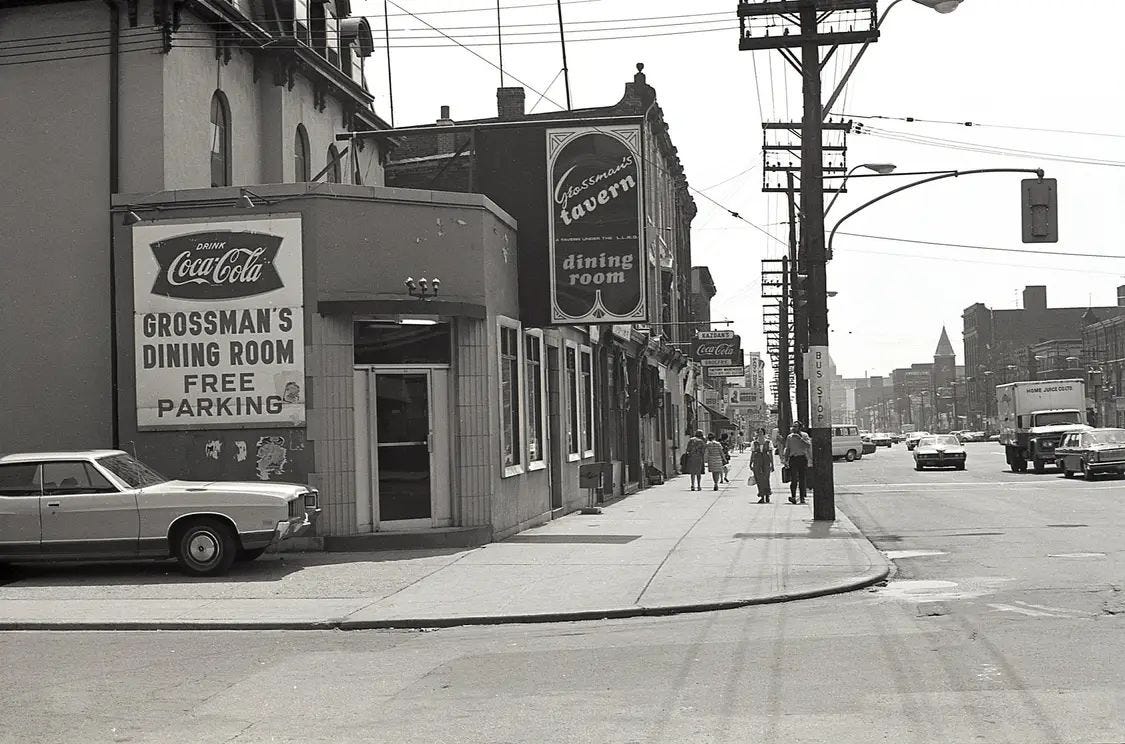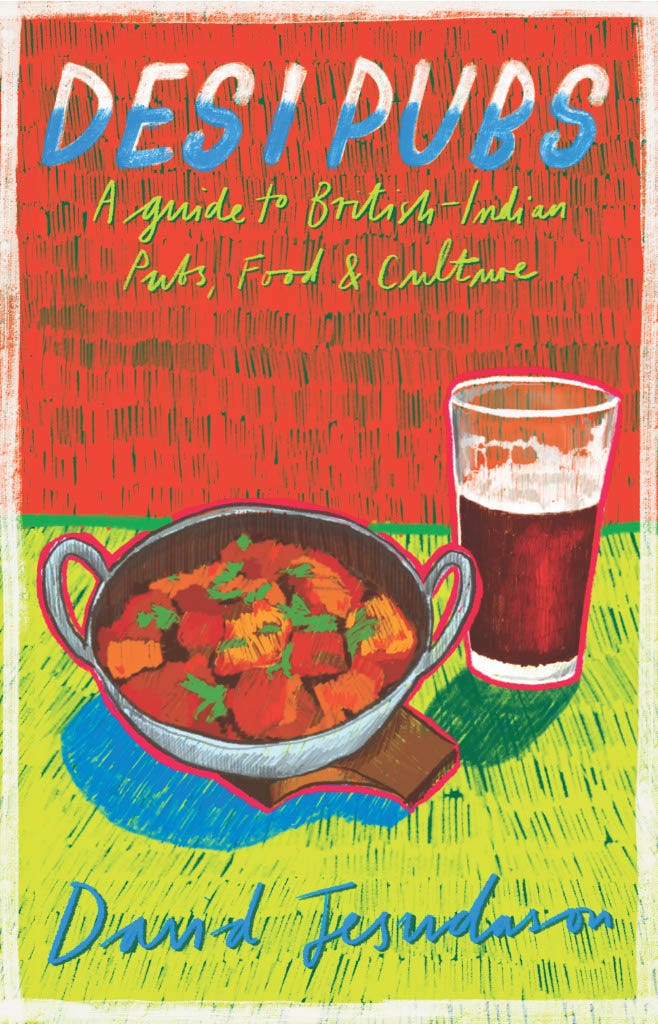The Park Plaza bar - Toronto
It's 1965. Margaret Atwood describes a bar in her debut novel The Edible Woman which is very reminiscent of male spaces today
Disclaimer: this newsletter often mentions beer and pubs. You do not have to read this if your life has been affected by substance abuse. This post also references sexual assault and the Russell Brand furore.
I’d like to thank everyone who has donated to my Ko-Fi here. If you’ve not done so already please buy Desi Pubs - A guide to British-Indian Pubs, Food & Culture here.
If you like today’s article please pledge some funds here as it took a lot of time to put together.
The elevator came and Peter said “Roof, please,” to the white-gloved elevator girl, and we moved smoothly upwards. The Park Plaza is a hotel really, but they have a bar at the top, one of Peter’s favourite places for a quiet drink… Being up that high gives you a sense of vertical which is rare in the city. The room itself is well-lit, not dark as a drain like many others, and it’s clean. No one ever seems to get offensively drunk there, and you can hear yourself talk: there is no band or singer. The chairs are comfortable, the decor is reminiscent of the 18th century, and the bartenders all know Peter.
Margaret Atwood’s description above of the Park Plaza in her 1969 debut novel, The Edible Woman, feels curiously contemporary when re-read today. The hotel bar is situated high up in the Toronto skyline and peers down on a city that was awakening to feminism when Atwood wrote this book in 1965. Today, a man like Peter still has many bars like this to choose from in every major city and when he enters the bartenders all know him.
Peter’s drinking place of choice is boring, mirroring his own charmless personality. And it’s a male space that protagonist Marion (whose eyes we see the Park Plaza through) eventually runs from - literally - even though she may not be able to articulate why.

Marion works at a market research firm and is in an unhealthy relationship with the conformist (and capitalist) Peter despite her being the opposite. She is independent and free-thinking, while she has friends who defy the time’s social norms - her flatmate Ainsley wants to bear a child outside of wedlock.
Peter is the type of man impressed by another (man’s) profession. Marion is thoughtful, sees the best in people and unsurprisingly feels claustrophobic after agreeing passively to marry Peter.
The decision stops her eating as she starts to humanise the food she sees on the plate, in the cupboard, at the supermarket aisle and on the TV. Unlike the meals that make her queasy, parts of her passive persona have become devoured by Peter and the male-dominated society she inhabits.
The Park Plaza may be somewhere you never want to willingly visit but that’s the point: many who do go are unwitting guests. Taken on dates. Picked up in cars and driven here. The driver is also an unwitting participant in someone else’s drama.
The waiter appeared with the wine, and Peter tasted it and nodded. The waiter poured and stepped back into the darkness. That was another nice thing about Peter. He could make that kind of decision effortlessly. She had fallen into the habit in the last month or so of letting him choose for her.
In this scene, and throughout the relationship, the conversation, like the drink and food, is controlled by Peter. He wants to talk about how to discipline children and dismisses Marion’s pleas for understanding their feelings as a symptom of “leading a sheltered life”.
And Peter, like so many other men, who inhabit these spaces, doesn’t appear to be a monster to bystanders. But we can only deal with their behaviour, and sometimes we need reminding, that’s all that matters. The rest is just noise.

Next week I will be continuing this theme by speaking to someone in beer who has found the Russell Brand revelations deeply traumatising. She’s also been attacked online (by men) for sharing her accounts of sexual assault despite how important it is for victims to come forward and have their accounts taken seriously.
If you want something more upbeat I recently wrote this about taking on far-right chat in Rye. And I enjoyed reading this on segregated men and women’s spaces in Ontario.




